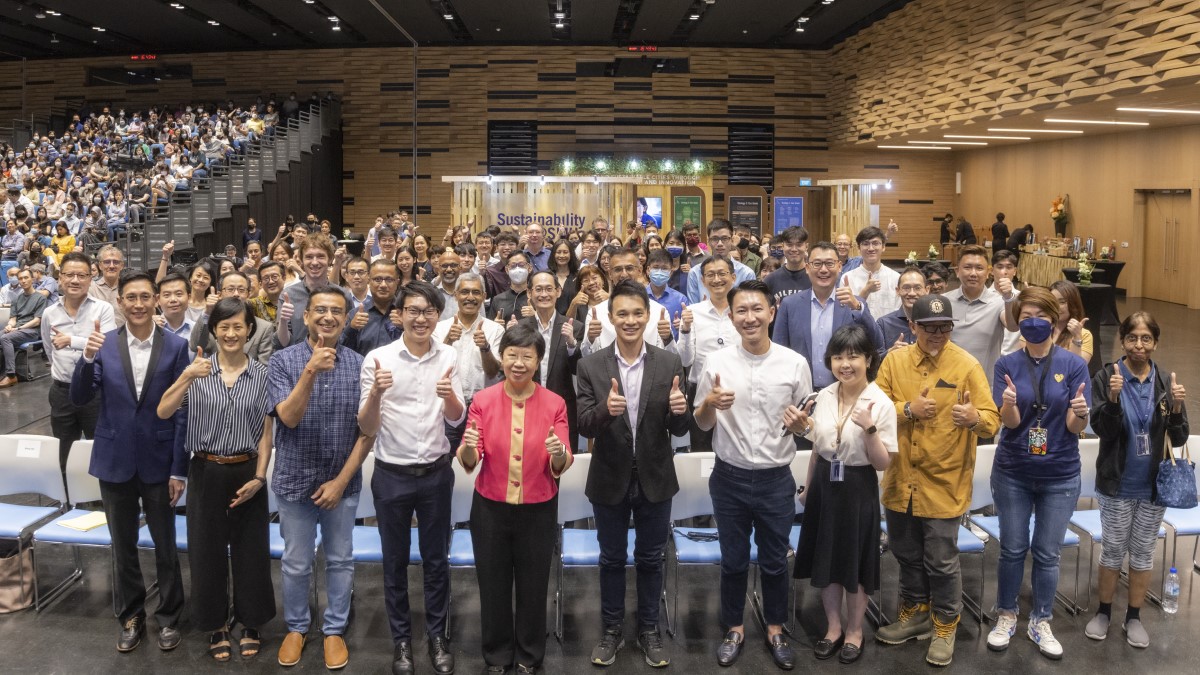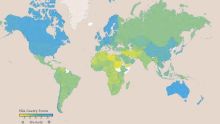
President’s State of the University Address 2022
Singapore has long been known as a garden city, and with good reason. The city is home to an abundance of greenery, from the carefully manicured gardens of the Botanic Gardens to the lush foliage of Pulau Ubin. This verdant landscape provides a refreshing contrast to the concrete jungle of most other global cities, and serves as a counterpoint to the country’s stratospheric skyscrapers and its status as an economic powerhouse.
Against this backdrop of rich potential and growth, SMU has positioned itself as a vital element in a vast ecosystem, as it pursues its strategic priority of Growth in Asia — as President Lily Kong noted in her most recent State of the University Address, held on 9 September 2022.
During the latest iteration of the annual address, Professor Kong touched upon the milestones achieved by the University in the past year, as well as the strides it has made towards its Vision 2025 strategic priorities — which also include Digital Transformation and Sustainable Living. She then delved into SMU’s goals moving forward, and its plans to drive the priorities to the next level.
Asia’s future is now
The future continues to be bright for Asia. The region has been the epicentre of growth and recovery in recent years, and is expected to continue outperforming the rest of the world in the years to come. And SMU is committed to doing its part to support the development of Singapore and the region.
“We have forged new collaborations with leading universities in Asia, in education, research and professional development programmes,” says Professor Kong, who cites partnerships with Bank Mandiri, Indonesia’s largest bank, and the Thailand Management Association as being pivotal to SMU’s foray into these new markets.
With the reopening of international borders, overseas immersion trips to provide a deeper understanding of Asia’s economy, polity and society have also resumed. Meanwhile, three research projects contributing to meaningful impact on Growth in Asia have received funding — including School of Social Sciences (SOSS) Associate Professor Forrest Zhang’s studies on the profound transformations in Chinese agriculture and its implications on the global food system, which received MOE Tier 2 Funding.
As part of its commitment to being an Engaged City University, SMU’s first Overseas Centre in Jakarta will be unveiled this December, with plans for initiatives in Bangkok and Ho Chi Minh City to be materialised in the next three to five years. The Centres are gateways for SMU into the region, and for the region to get to know and access SMU.
“They will help to secure educational experiences for our students, and support research opportunities for our faculty,” says Professor Kong.
“They will simultaneously contribute to social and economic development for the local communities, particularly through training and human capital development, collaborating with in-country institutions and industry.”
Thriving in a digital reality
The digital world has unleashed a new era of opportunity for businesses of all sizes. By harnessing the power of digital technologies, businesses can reach new markets, deliver innovative products and services, and drive growth and profitability.
As such, a taskforce led by Senior Vice President (Administration) Hugh Edmiston, was formed to address the “objectives of delivering a transformative education, enabling cutting edge research, and providing an engaging work environment”.
To amplify efforts towards transformative education, the Yong Pung How School of Law (YPHSL) has introduced a Master of Laws (LLM) programme – with a Track in Law and Technology, as well as a PhD in Law, Commerce, and Technology; while the Lee Kong Chian School of Business (LKCSB) has introduced a Digital Business 2nd Major.
Several key initiatives have also been identified under the Digital Learning Strategy to digitally empower faculty and students. For example, 78 instructors have adopted a blended learning approach in 74 courses this Academic Year.
And besides the ground-breaking research by SMU faculty into digital transformation, the SMU-A*Star Joint Lab in Social and Human-Centred Computing was also launched to develop globally competitive research capabilities in the fields of human health, potentials, urban solutions and sustainability.
A common cause
As the world becomes increasingly globalised, the need for sustainable development has never been greater. Committing to a sustainable future means taking responsibility for our own impact on society and the environment.
“The way we have approached the Sustainable Living strategic priority can serve as a model for how we continue to develop and pursue the other two priorities of Growth in Asia and Digital Transformation,” shares Professor Kong.
In September 2022, SMU’s first Sustainability Blueprint was conceived to identify four strategies which cover the spectrum of how we work, learn, and play as an Engaged City University: Cultivate a Greener University; Develop Change Agents; Drive Impactful Research; Foster Resilient Communities. The Blueprint not only supports SMU Vision 2025, it also aligns with the principles of the Sustainable Development Goals (SDGs) developed by the United Nations (UN) for a tangible pathway to a more sustainable future.
She adds: “Our collective efforts across these strategies are mapped onto the relevant United Nations Sustainable Development Goals (or UN SDGs) – so that, even as a small community, the University can contribute meaningfully to larger global efforts.”
Besides being recognised for the green performance of its architecture, SMU has also adopted state-of-the-art technologies for buildings that contribute to sustainability: innovative engineering methods and technologies which shortened construction time were employed in buildings such as SMU Connexion. Such efforts also improved buildability and productivity, and most importantly, reduced carbon emissions.
To further nurture sustainability-minded leaders of tomorrow, an undergraduate course requirement that delivers baseline sustainability mastery, as encapsulated in the UN SDGs, will be launched.
Moreover, SMU will build in five key research strengths, namely: sustainable business operations, sustainable urban infrastructure, sustainable ageing and wellness, sustainable agro-businesses and food consumption, as well as sustainable finance and impact assessment. It will also kickstart a suite of programmes to address diversity, equity, and inclusion.
As Professor Kong remarks, “We will be the first university in Singapore, and possibly Asia, to put the spotlight on sustainability in undergraduate curriculum and co-curriculum, and this integration across the two areas is designed to result in a transformational impact on knowledge, attitudes, and behaviours.”
For more information on the SMU Sustainability Blueprint, watch the video, read the flipbook, or visit the SMU Sustainability website.
Read more about the President’s State of the University Address 2022.


